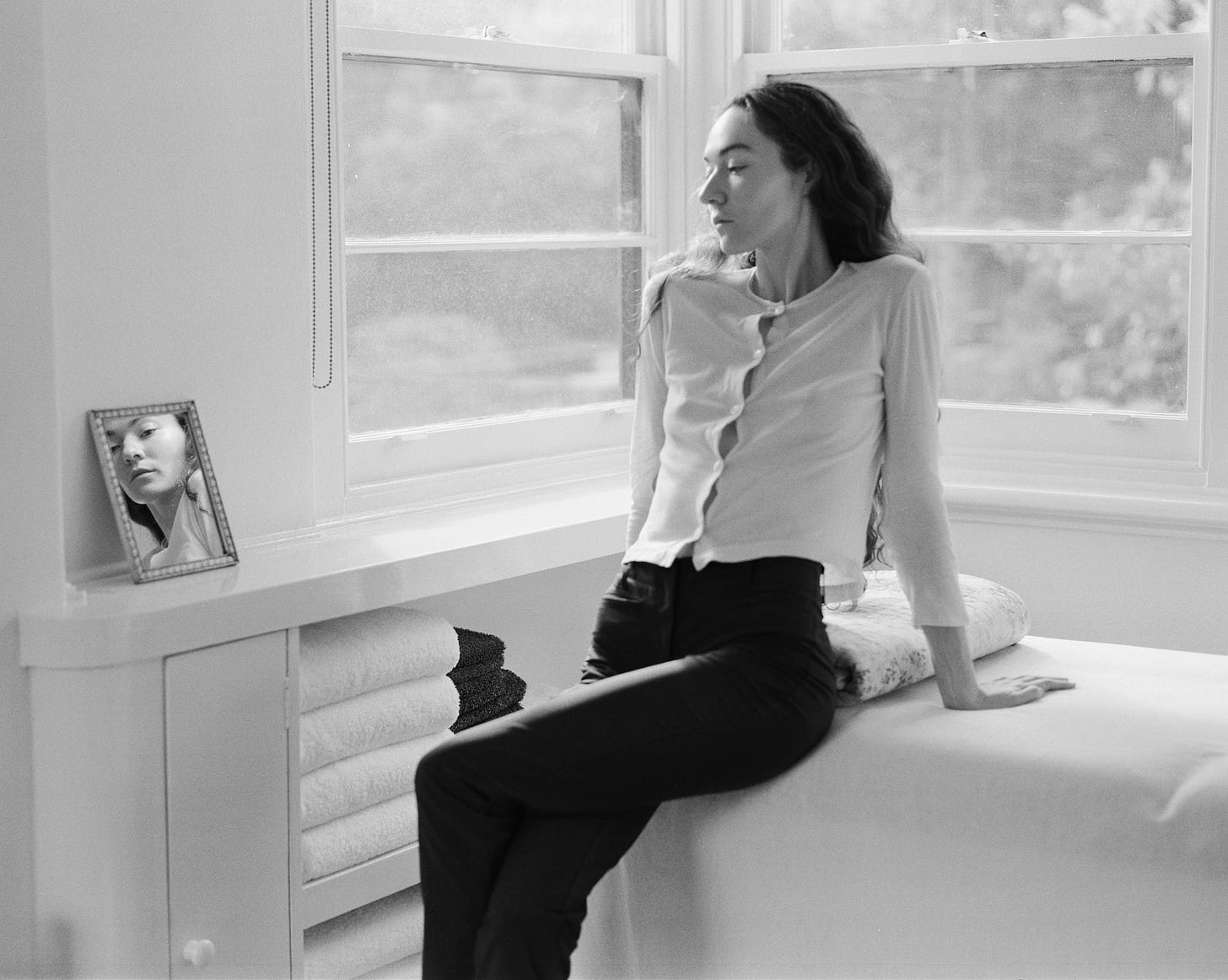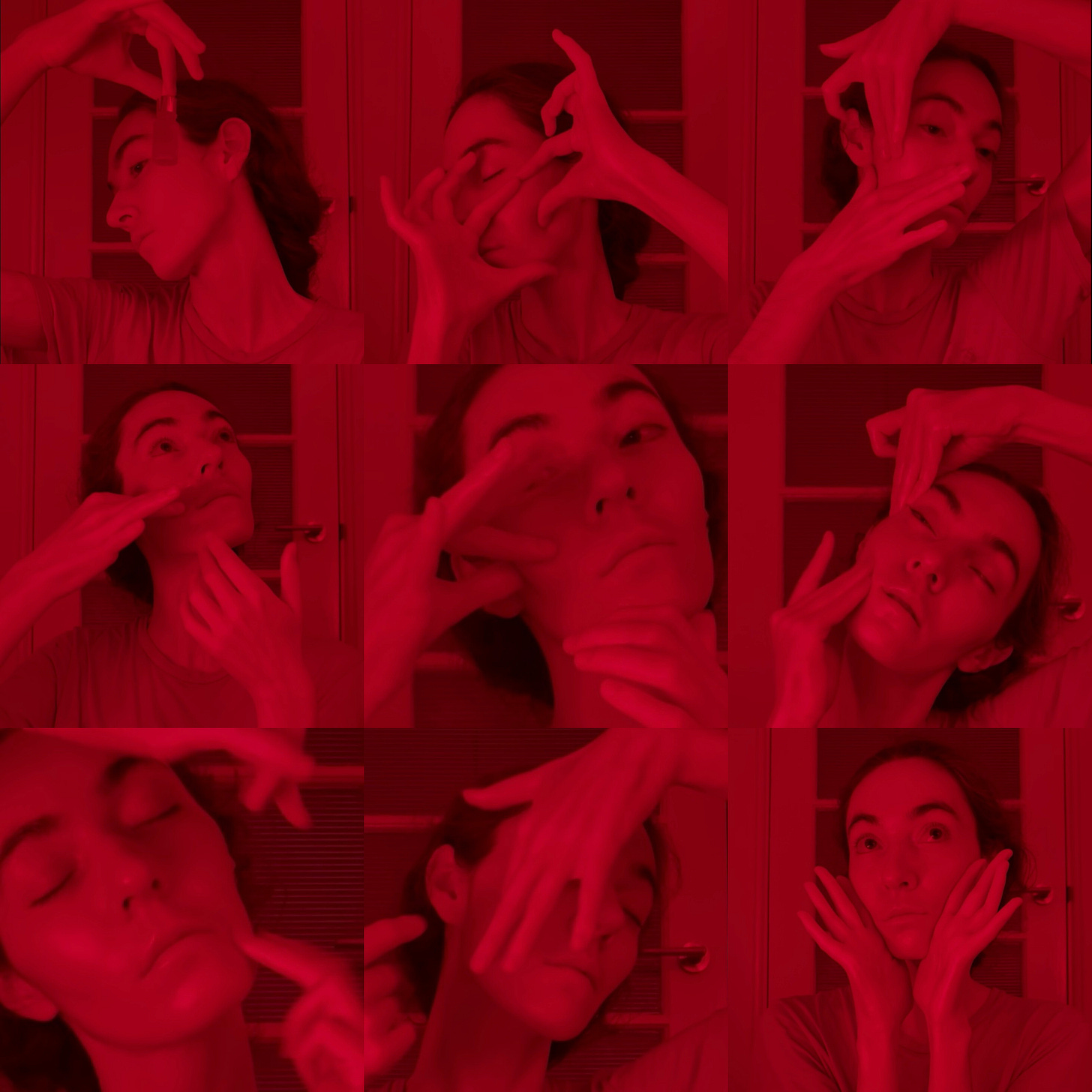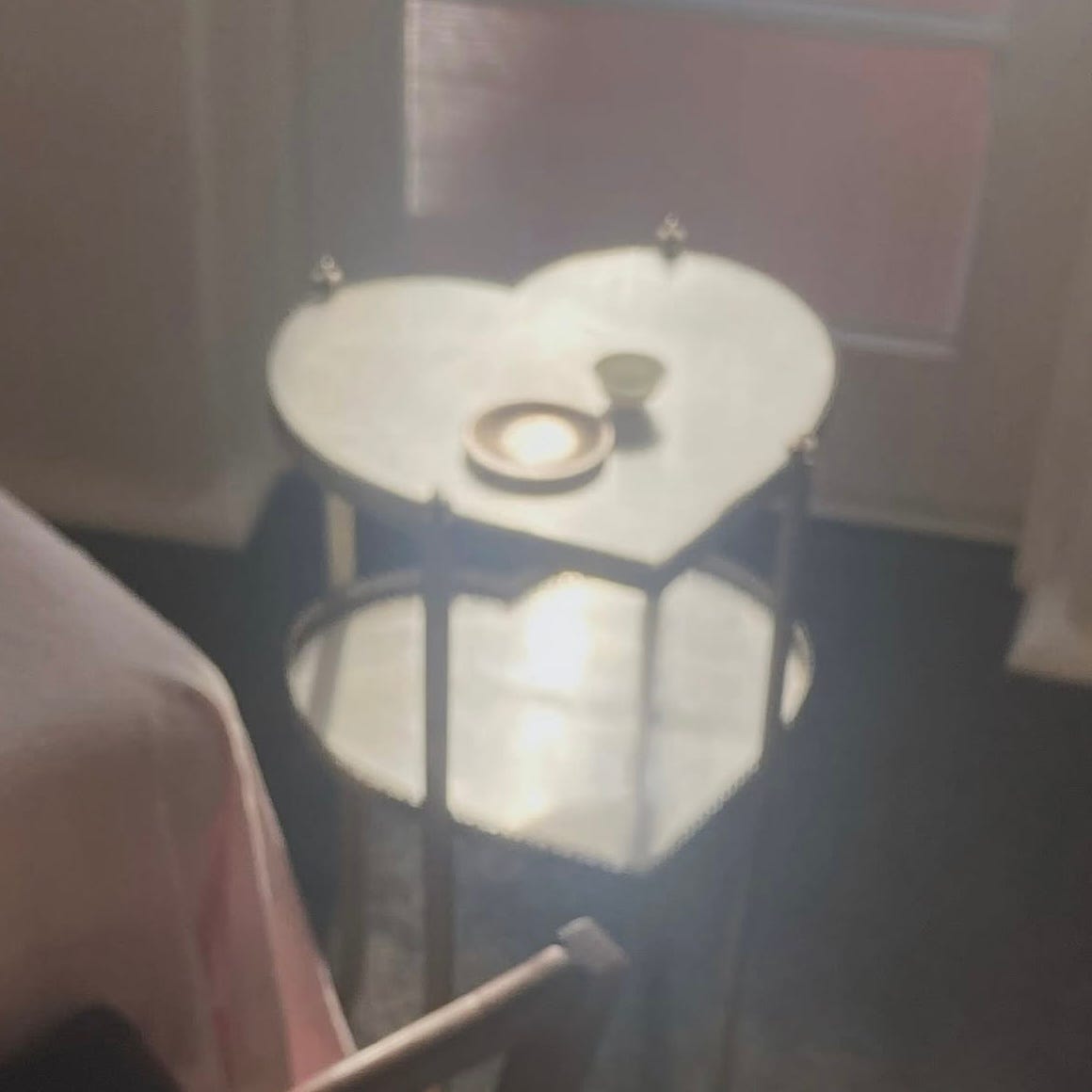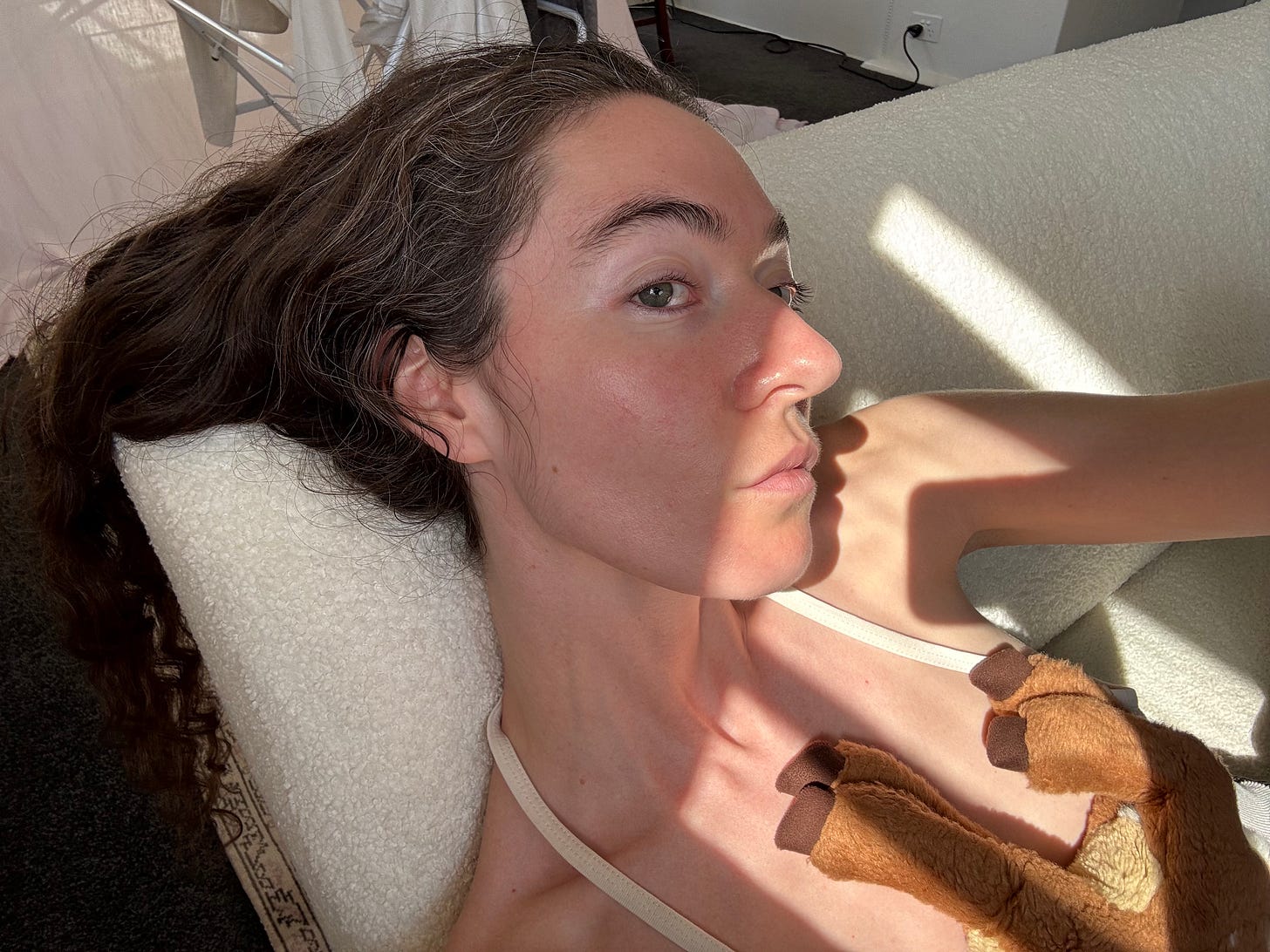In Practice: Madeleine Iona Lukács Smith
Esoteric skin spécialiste, creator of Swan Light 🩰
Welcome to a new series of interviews tracing the healers, founders, and brands shaping health and wellness today. Our first guest is Madeleine Iona Lukács Smith, an integrative kobido specialist and creator of Swan Light.
With a gentle and intuitive approach, Madeleine’s work goes beyond just a facial, inviting a soft unfolding that begins at the level of the nervous system.
If you’re in Melbourne, you can request a session with her here.
To start, how did you first discover kobido?
I actually just saw a video on YouTube. I was watching ASMR skincare videos to relax and I stumbled across someone practicing kobido. It was incredibly beautiful to watch. I looked into it further and I found it really captivating. I hadn't even experienced it myself before I traveled to Paris to study kobido, as it isn't common here. When I did experience it, I was struck by its effectiveness and mystery.
I also found kobido when my mother was very ill. I had been her caretaker and I was very cut off from the way my life once was. Living in a town I hated. It was an isolating time, but also deeply rewarding. Grief hands you the capacity to hold more love, and hold more joy. Kobido came through to me, as a gift, because I opened myself to that.
Can you walk us through your scope of study?
Kobido originally started in Japan, however it's not culturally embedded in the way you might imagine. It's a distinct style from one ‘school,’ which has been very carefully protected since the 15th century. There's now a lot of contention around who can practice it, because unfortunately so many people just do a four-hour online course and say they're qualified. It’s an art form. It takes time to unfold.
It’s also more commonly found in France and Eastern Europe now. I undertook two intensives over the course of a year, with extensive practice in between, in Paris at Institut Takumi Finch (under Sandrine Takumi Finch). It was the first time Sandrine had taught kobido in English. Previously she had only taught in French, and that course was spaced over approximately 6 months. (Note, the Institut have now chosen to use a different word rather than kobido.)
I think to be good at anything, you need a wildly individualized relationship to it. That's when the magic comes through.
You learn anatomy, and you learn (and then perfect) the distinct movements. How you apply it is up to you. It’s like learning ballet, you're trained in technique to the nth degree. However, you can't be taught emotion, receptivity, beauty, etc. There's established movements but beyond that, it’s unique to the person practicing. I think to be good at anything, you need a wildly individualized relationship to it. That's when the magic comes through.
Like all things, you learn the rules and then you break them. And by break, I mean play with. My practice has evolved from kobido. Swan Light is alive and breathing…
Are there any specific teachers or lineages that have shaped your approach?
My practice is shaped and informed by Daoism, the Five Spirits, internal alchemy, specific female mystics, my love of glamour, my love of flowers, and my love of rabbits.
Lorie Eve Dechar is an acupuncturist and therapist who I really appreciate. She's written multiple books that inform how I navigate my own life, and this filters through into my work. Kigo is my favorite, but Five Spirits and The Alchemy of Inner Work are also great, and more accessible.
What does a Swan Light session look like?
For new clients, I give a small description of kobido but I also like people to experience it without my words already too established in their head. I oil cleanse, apply a flower essence toner, and then exclusively massage for 70 minutes. It’s not a facial in any classic sense.
Generally speaking, I follow a protocol that shifts intuitively depending on the person, their skin, bone structure, nervous system, etc.
I work in silence, it's a personal preference, and I also think it allows a client to experience kobido and themselves more deeply. A lot of clients fall asleep. I love when they do because I get to see and feel their face and skin in a different way.
I close with the same movement every time.
Do you customize the flower essence toners to each client?
Depending on how well I know them. I usually use a set combination for new clients, or sometimes not at all. I use basic things for the skin, like chamomile or calendula. And then ‘opening,’ ‘moving,’ ‘grounding’ essences, such as rabbit orchid, hemlock, smokey quartz, etc.
I make a lot myself. Generally they work more effectively on me personally because I've established that rapport with the flower/plant in the initial stages. My heroine essence is strawberry and I made it on Christmas day. A pink strawberry flower, not white.
I also use Australian Bush flower essences, and another Australian brand called Living Essences. Very rarely Bach. Although I do take Alexis Smart remedies myself.
Technically when I apply an essence the skin is already slightly oily from cleansing, so there's minimal topical absorption. Meaning a lot of people who use essences wouldn't necessarily agree that it's effective. But I don't really follow a lot of the rules when it comes to flower essences. I've been using them my entire life and I know from experience that an essence can work in a millisecond. And then maybe you don't need to take that particular essence ever again.
I consider kobido vibrational medicine so I think it pairs beautifully with essences.
How does kobido compare to other modalities, like gua sha or lymphatic massage?
It's a dance. Kobido is light and in that lightness it becomes incredibly poetic; sometimes the movements are barely there. They’re vibrational and almost percussive. The more you practice, the less you touch. Infinitesimal movements create the most remarkable aesthetic shifts. Generally speaking kobido only uses the fingers, rather than the whole hands. I don’t use my palms. It’s very focused, and you work on the skin millimeter by millimeter.
The more you practice, the less you touch. Infinitesimal movements create the most remarkable aesthetic shifts.
In my experience, kobido asks you to suspend what you think you know. When you open to the possibility that you can lift someone's face with the pad of one finger, you can. While I work closely with clients to achieve the results they want, I also don't feel as though kobido is overtly goal-oriented, at least in the way I practice. It extends into a realm that surpasses goals. You can and do create very visible changes but there's so much more, which is why I'm so endlessly fascinated by it.
I’m not trained in other modalities so beyond describing how kobido can feel different, I don't really want to compare.
Do you see the face as a reflection of deeper energetic patterns?
There's definitely common patterns of tension that you can see and feel. In places you'd expect, like the jaw. A lot of puckered chins. However clients also reflect that they had so much tension in a certain place, and that they had never realized it consciously.
I’m not chasing the tension, or zeroing in on it. I work the entire face to move qi, blood, lymph, etc. I also think it's important to note that things take time and can't be forced. If someone's chin is really that locked, there's lots of emotional layers and working slowly over multiple sessions is going to not only establish trust, but work more effectively.
I love kobido because it's gentle. I think it addresses big emotion in a respectful way. I believe the face and nervous system respond to a light touch. Tissue does hold trauma and I like to tread softly.
I also think we all hold things differently, because we differ in how we operate emotionally. There are lots of systems that correlate certain parts of the face to certain feelings/organs, etc, and I do see that, but it doesn't necessarily inform my practice in a deep way. I maintain fairly strong boundaries in the sense that I’m not trying to piece together a story from someone's face. Their feelings belong to them, and I don't need to ‘know’ those feelings in order to facilitate the shifts that result from kobido. I love having conversations with clients about what's going on for them, but I certainly don't offer a narrative from what I witness in and on their face. I think it's counterintuitive and irresponsible.
I maintain fairly strong boundaries in the sense that I’m not trying to piece together a story from someone's face…I think it's counterintuitive and irresponsible.
I really believe that all healing is self healing. Skilled practitioners can facilitate and support (and they can be really necessary!) but the spark that moves, guides and heals belongs to the client. I encourage clients to reflect on what feels true to them.
What sorts of shifts tend to unfold with regular kobido?
People are less twitchy (i.e., their nervous systems are at ease), at least when we're in the treatment room. They drop in faster, stay in longer…
While kobido is relaxing, it also allows space for a lot of processing. Clients can process a lot in one session, and they might be half asleep. Memories come up. Over time, this compounds. Peoples’ faces are relaxed and they look like themselves. Feeling like yourself allows you to step into the world with more grit and more grace.
Yesterday a client told me that we uncover more every time, but never by going “harder.” The more developed a client-practitioner relationship is, the more possibilities.
If you're coming regularly enough, skin health is so affected. It becomes so healthy. Tissues are enlivened in a really incredible way, because qi is flowing.
How has working so closely with faces changed how you relate to your own?
When you consistently and routinely treat people with compassion, it becomes more difficult to withhold that from yourself. It’s obviously not conscious; I don't remind myself to treat my clients with compassion. It’s like breathing. Being in that space creates a vibration which articulates itself in special ways.
What does your own skincare routine look like?
I can't really perform kobido on myself. It doesn't work like that, although other practitioners may disagree. I translate certain movements but it will never have the lightness and precision necessary for it to really count as kobido. But I massage my face very regularly. Red light when I remember. My skin is incredibly sensitive so I don't get to try products just because they look cute and fun, which I used to enjoy doing. I use my own signature oil a lot.
I treat my nervous system care as skincare too. Qigong every day. Yin or meridian stretching. I love smiling at myself in the mirror. Not in a practicing for a job interview kind of way. It might sound esoteric but you get to a point where it's a smile that no one else has seen. A secret smile. Or maybe someone you love very deeply has seen it, but it's the first time you experience it. The more you do it, the more it becomes spontaneous and very real. I think truly witnessing yourself makes life easier to navigate.
How do you reset after a long day of treatments?
It's never chic to overdo it.
As mentioned, I do qigong everyday. I try to do it before a session if I have time. It clears me energetically, helps with protecting my body from straining too much, and most importantly connects me to myself. I love qigong as much as I love kobido.
I put my phone on airplane mode. I’m obsessed with closing the blinds and spending time in darkness. I visit my mom very regularly, eat the amazing food she makes me, and sing to our rabbit. I’m basically tone deaf but he loves it because it’s such a pure expression of love.
What feels most alive or emergent in your practice right now?
Care and presence. It sounds simple but they're stripped from a lot. Care and presence establish trust and an energetic rapport, and from there anything is possible. From that place, people can step into their own radiance, which I think is really the point of it all. Sharing our light and living our Dao. And being hot, because that's an extension of truth.
What do you hope people carry with them after a session?
Silence. A certain self-containment. I hope people feel like themselves, and I hope they feel beautiful too.
Finally, how do you personally define ‘health’?
I consider health as having the capacity for clarity, discernment, and self sufficiency. Courage. Deep intimacy with myself, the intuition that comes from that. Moving and responding to stimuli (life) appropriately. Appropriately as in, appropriate to me and my values. Discipline and flexibility. Charisma. A weak black coffee and a cigarette. Anything I want. I think it’s a creative practice and I also think when I take it too seriously and codify it too absolutely, I limit myself and become boring.
As I’ve gotten older, I also see health as a space that includes ill-health, unwellness, emotional/energetic stagnation, etc. Health isn’t static and I think the whole picture illuminates more. Periods of pain inform so much. More often than not we need to reach these dark places to become who we're meant to be. And just be there for a bit, as alienating as it may feel.
Oftentimes we're made to feel like it's our fault when we can't fix something. You can do all the things and still feel at a loss. Sometimes you do need help, sometimes you just need to wait. At a certain point in the terrifying depths, yin spontaneously returns to yang and the cycle begins again.
Ultimately I believe health is a glittering thread. To ourselves, our inner landscape, to nature, and the divine. God. Love. The words you use don't matter that much. What matters is cultivating a relationship with it that means something to you and you alone. That’s the dialogue that I care about.
At the end of the day, we're always being held. Even when it feels like we're not.
*
Madeleine’s favorites:
Monastery’s Attar Floral Balm (“I like their rose glycolic acid, XX, too.”)
Swan Light’s facial oil [note: available for purchase via DM or through the Swan Light contact form]
Alexis Smart’s flower essences for skin (Beauty Formula 7, 8 and 9)
“I don't wear makeup very often but when I do I love Manasi7 and Hermes. Le Pure has the best oil-serum foundation.”









